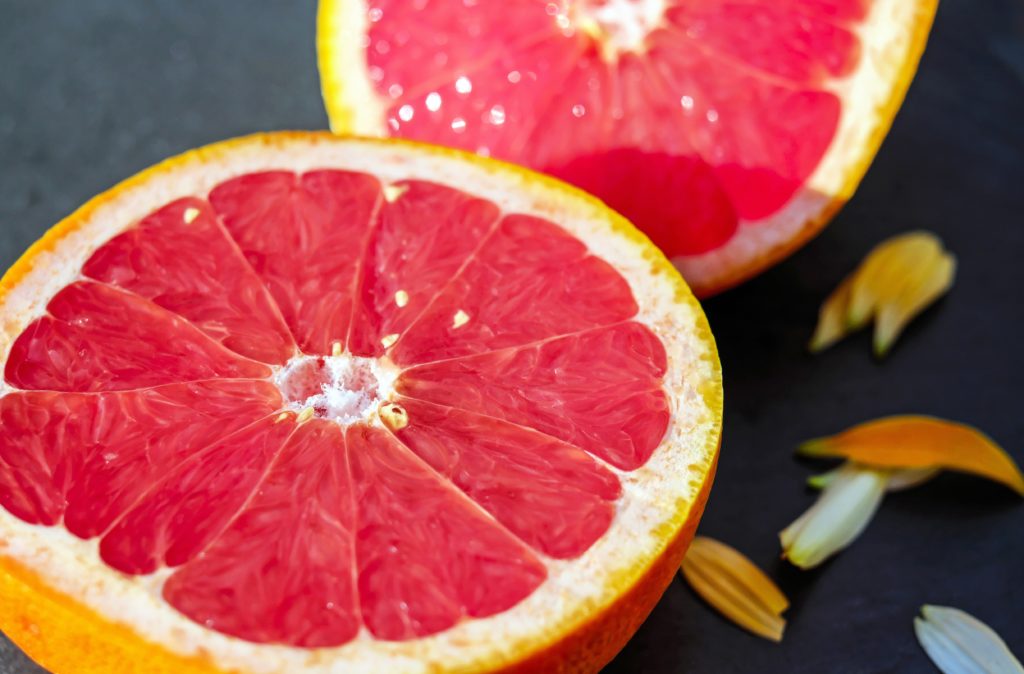Foods to Avoid While Taking Methadone
Methadone interactions with common foods are sometimes overlooked.
Opioid addiction recovery involves changing many aspects of your life, sometimes including eating habits. If you take methadone as part of a medication-assisted treatment program, pay special attention to what you eat and drink. Certain foods can cause interactions or side effects. Consider the following foods to avoid during while taking methadone as part of your treatment program.
Why you Shouldn’t Eat Grapefruit While Taking Methadone
Among the foods to avoid during medication assisted treatment (MAT) with methadone, grapefruit is the biggest. Unfortunately, grapefruit is a delicious fruit that negatively impacts many medications, including methadone. Also, be sure that none of your wellness supplements contain grapefruit extract.
Grapefruit suppresses your enzyme system, making you absorb medications differently. It contains an antioxidant flavonoid that inhibits rental metabolism. When you eat or drink grapefruit while taking methadone, it increases the medication levels in your blood. This interaction can cause unexpected and adverse side effects.
Grapefruit and methadone are a bad combo. Stick to orange juice if you enjoy a citrusy beverage. It has not shown to have any known interactions with methadone. Typically, other citrus like lemon and lime should be okay, but speak with your medical provider to be sure.
Methadone and Caffeine Interaction Risks

Methadone can affect your heart rate, and so can caffeine. As you receive treatment, staying away from substances that affect your heart’s rhythm will help you maintain your cardiovascular health. Taking methadone in combination with substances that contain caffeine can cause an irregular heartbeat. This can have life-threatening risks, especially if your provider is not aware.
Coffee is a popular beverage among those in substance use disorder recovery. Still, it can cause adverse effects, especially heightening anxiety. You should always assess the effect it has on your body while you are in MAT. If you have any concerns, be sure to consult your medical provider.
Some excellent alternatives to coffee include:
- Hot cocoa
- Tea
- Chicory
- Broth
Check out more options here. Bone broth is a popular choice if you enjoy a warm beverage in the morning. Many people in recovery shift their focus onto wellness and health. Bone broth helps the body hydrate with electrolytes and essential nutrients. It may seem unconventional, but it could be the boost you seek!
Processed Foods to Avoid While Taking Methadone
Food that contains high levels of sugar and fat does not have a direct interaction with methadone. However, it can have a higher impact on the health of someone recovering from an opioid addiction.
Methadone changes the way your body processes sugar and opioid withdrawal can cause extra sugar cravings. These factors can increase your sugar intake and affect your BMI, cholesterol and other aspects of your health. Try to balance the amount of processed food you eat and cut it out where possible.
Some simple switches you can make:
- Instead of French fries, slice a potato into strips and bake them with olive oil.
- Replace cookies with oatmeal bowls containing honey, chocolate chips and fruit.
- Instead of burgers or chicken nuggets, opt for some baked fish with spices and side dishes
You can find hundreds of recipes online for free these days. Many are simple and beginner friendly. Do not be afraid to experiment with new flavors as you begin your recovery journey. Your goal is to maintain a healthy lifestyle for opioid recovery.
Can you Drink Alcohol while taking Methadone?
Both alcohol and methadone depress the central nervous system, so taking them together can have dangerous effects. An opioid overdose happens when opioids depress your central nervous system too much, causing your breathing to slow or stop.
People who take methadone for opioid use disorder may not believe that drinking alcohol socially affects their recovery. Some choose to forgo all psychoactive substances, sometimes with the exclusion of caffeine. This decision is between you, yourself and your medical provider.
Taking methadone as directed will minimize your risk of adverse effects, but alcohol changes the drug’s effect on the body. The combination can potentially cause dangerous or lethal effects like an overdose. Choose non-alcoholic alternatives. Many non-alcoholic drinks are on the market, and plenty of mocktail recipes are available online.
Diet Tips for Opioid Addiction Recovery
Your treatment with methadone and diet are interconnected. Medication-assisted treatment is taking you through the next journey of your life. Recovery will be full of learning experiences and rebuilding. One of the biggest parts of this new chapter is re-learning how to nourish your body for optimal health.
Although it can take some time to perfect your diet and eating regimen, there are several things to keep in mind.
- Manage your weight: It can become more challenging to maintain a healthy BMI when you are in treatment for opioid use disorder. Work with your provider to gain or lose weight as needed and reach the right BMI for your height.
- Adopt an active lifestyle: Exercise helps your brain manage dopamine, one of the chemicals affected by opioids. It also gives you healthy habits to follow and maintains your overall health.
- Eat a healthy diet: Like exercise, eating healthy helps you manage your overall health. It also improves your body’s healing abilities as it recovers from opioid addiction.
- Practice self-care: Be kind to your body as it is healing. Daily stretches and other simple body maintenance routines help keep you in tune with yourself.
Eating the right foods and living a healthy lifestyle will improve your overall health and help you cope during recovery. You do not have to have it all figured out right away. Be kind to yourself and take your time figuring out what works best for you.
Recovery is a marathon, not a sprint. You can do it!
Get More Information About Foods to Avoid During Medication Assisted Treatment
If you need help recovering from opioid use disorder or to learn more about methadone, our specialized staff at Health Care Resource Centers (HCRC) can help. Our treatment centers are staffed with addiction treatment professionals that are knowledgeable in every aspect of addiction recovery.
If you are ready to take the first step towards a life in recovery, contact us today. You can visit our page for more resources or schedule your first appointment.




